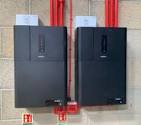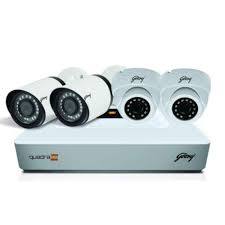Very Early Smoke Detection Apparatus (VESDA) Panel: Enhancing Fire Detection Systems
In the realm of fire detection and prevention, the Very Early Smoke Detection Apparatus (VESDA) panel stands out as a cutting-edge solution that offers superior protection against potential fire hazards. Designed to provide early warning of smoke presence, the VESDA panel utilizes advanced technology to detect even the smallest traces of smoke particles in the air, allowing for swift action to be taken before a fire can escalate.
One of the key features of the VESDA panel is its sensitivity to smoke particles at an incredibly early stage, long before traditional smoke detectors would be triggered. This early detection capability is crucial in critical environments where rapid response is essential to prevent catastrophic damage and ensure the safety of occupants.
Furthermore, the VESDA panel is known for its reliability and low maintenance requirements, making it a cost-effective choice for businesses and facilities looking to enhance their fire detection systems. By continuously monitoring air quality and providing real-time alerts in case of smoke detection, the VESDA panel offers peace of mind and confidence in the safety measures put in place.
In addition to its advanced detection capabilities, the VESDA panel can be seamlessly integrated with existing fire alarm systems, allowing for a comprehensive approach to fire safety within a building or facility. Its compatibility with various communication protocols and alarm systems makes it a versatile solution suitable for a wide range of applications.
Overall, the VESDA panel represents a significant advancement in fire detection technology, offering unparalleled sensitivity and reliability in detecting smoke particles at an early stage. With its ability to provide timely alerts and seamless integration with existing systems, the VESDA panel is a valuable asset for ensuring effective fire prevention measures and protecting lives and property.
Understanding VESDA Panels: Key FAQs and Insights
- Is VESDA air sampling?
- Is VESDA a fire suppression system?
- What is VESDA and how does it work?
- What is the difference between a VESDA and a smoke detector?
- What are the benefits of VESDA?
- What is a VESDA panel?
- What is difference between VESDA and smoke detector?
Is VESDA air sampling?
One frequently asked question about VESDA panels is whether VESDA is air sampling. The answer to this question is yes, VESDA (Very Early Smoke Detection Apparatus) utilizes air sampling technology to detect the presence of smoke particles in the air. By continuously drawing in air samples from the monitored area and analyzing them for the presence of smoke particles, VESDA systems can provide early warning of potential fire hazards before they escalate. This air sampling capability allows VESDA panels to offer superior sensitivity and accuracy in detecting smoke at an early stage, making them a reliable and effective solution for fire detection and prevention.
Is VESDA a fire suppression system?
It is important to clarify that VESDA (Very Early Smoke Detection Apparatus) is not a fire suppression system, but rather a highly advanced smoke detection system. While VESDA panels are designed to detect smoke particles at an early stage to provide timely warnings and alerts, they do not have the capability to suppress fires directly. Instead, VESDA systems are typically integrated with fire alarm systems and other suppression measures to enhance overall fire safety and prevention efforts. By detecting smoke early on, VESDA panels play a crucial role in initiating appropriate response actions and minimizing the potential impact of fires before they escalate.
What is VESDA and how does it work?
What is VESDA and how does it work?
VESDA, which stands for Very Early Smoke Detection Apparatus, is an advanced smoke detection system designed to provide early warning of potential fire hazards. The VESDA system works by continuously sampling the air in the environment for even the smallest traces of smoke particles. Using sophisticated laser-based technology, VESDA can detect smoke at an incredibly early stage, well before traditional smoke detectors would be triggered. Once smoke particles are detected, the system generates real-time alerts to notify building occupants or monitoring systems, allowing for prompt action to be taken to prevent the escalation of a fire. This high level of sensitivity and rapid response capability makes VESDA an invaluable tool in enhancing fire detection and safety measures in a wide range of applications.
What is the difference between a VESDA and a smoke detector?
One frequently asked question regarding the VESDA panel is about the difference between a VESDA system and a traditional smoke detector. While both serve the common purpose of detecting smoke in the air, there are significant distinctions in their functionality and capabilities. Unlike standard smoke detectors that react to visible smoke particles, VESDA systems are designed to detect minuscule traces of smoke at an early stage, providing advanced warning before a fire can escalate. The sensitivity and precision of VESDA panels make them ideal for critical environments where rapid detection is essential for ensuring safety and preventing potential hazards. In essence, while traditional smoke detectors offer basic detection capabilities, VESDA systems offer a higher level of sensitivity and early warning that can make a crucial difference in fire prevention and mitigation.
What are the benefits of VESDA?
One of the most frequently asked questions about VESDA panels is, “What are the benefits of VESDA?” The benefits of VESDA lie in its advanced smoke detection technology that enables early warning and rapid response to potential fire hazards. By detecting smoke particles at an incredibly early stage, VESDA offers superior protection for critical environments, allowing for timely action to be taken before a fire can escalate. Additionally, VESDA panels are known for their reliability, low maintenance requirements, and seamless integration with existing fire alarm systems, making them a cost-effective and versatile solution for enhancing fire detection capabilities in various settings. Overall, the key benefits of VESDA include early detection, reliability, ease of integration, and enhanced safety measures to protect lives and property.
What is a VESDA panel?
What is a VESDA panel?
A VESDA panel, short for Very Early Smoke Detection Apparatus panel, is an advanced fire detection system designed to provide early warning of smoke presence in critical environments. Utilizing cutting-edge technology, the VESDA panel is highly sensitive to even the smallest traces of smoke particles in the air, allowing for swift detection and response before a fire can escalate. Known for its reliability and low maintenance requirements, the VESDA panel offers superior protection by continuously monitoring air quality and providing real-time alerts in case of smoke detection. Its seamless integration with existing fire alarm systems makes it a versatile and cost-effective solution for enhancing fire safety measures within buildings and facilities.
What is difference between VESDA and smoke detector?
One frequently asked question regarding the VESDA panel is about the difference between VESDA and a traditional smoke detector. While both serve the common purpose of detecting smoke and alerting occupants of a potential fire hazard, there are significant distinctions in their technology and capabilities. Unlike conventional smoke detectors that rely on optical or ionization sensors to detect smoke particles, the VESDA panel utilizes advanced aspirating technology to draw in air samples and analyze them for even the smallest traces of smoke. This allows the VESDA panel to provide very early detection of smoke presence, offering a higher level of sensitivity and accuracy compared to standard smoke detectors. Additionally, the VESDA panel is designed for continuous monitoring and can detect smoke at an early stage before it becomes a visible threat, providing valuable time for preventive measures to be taken.



